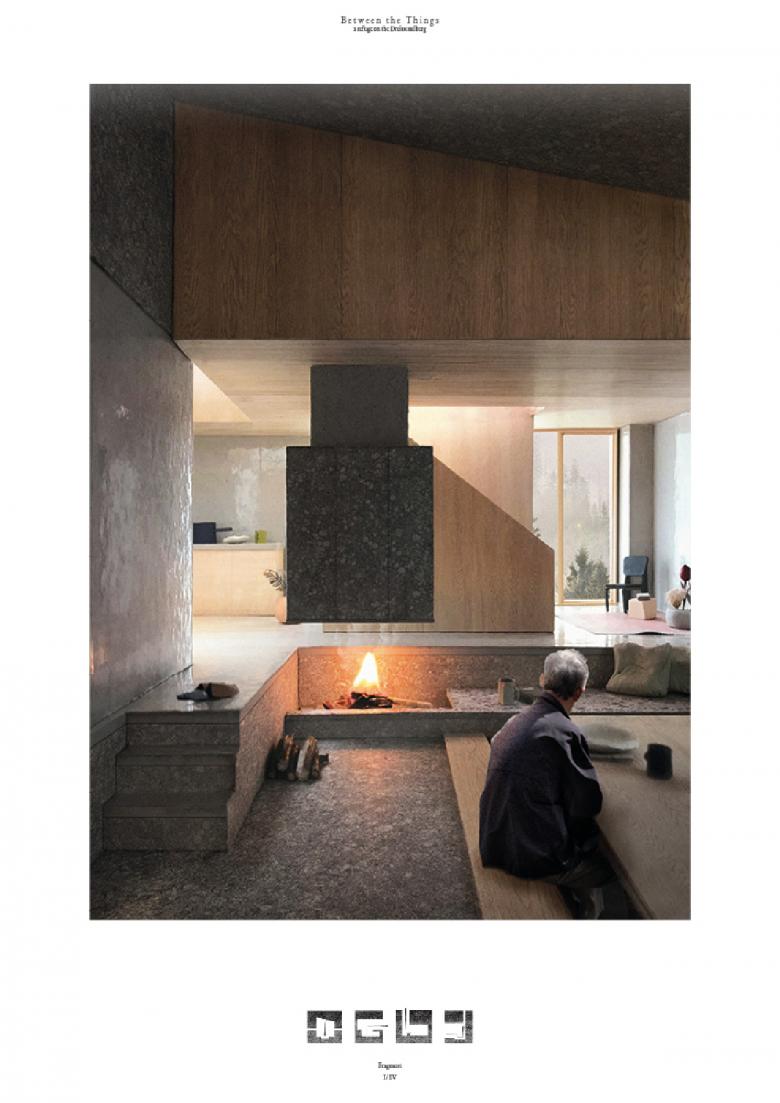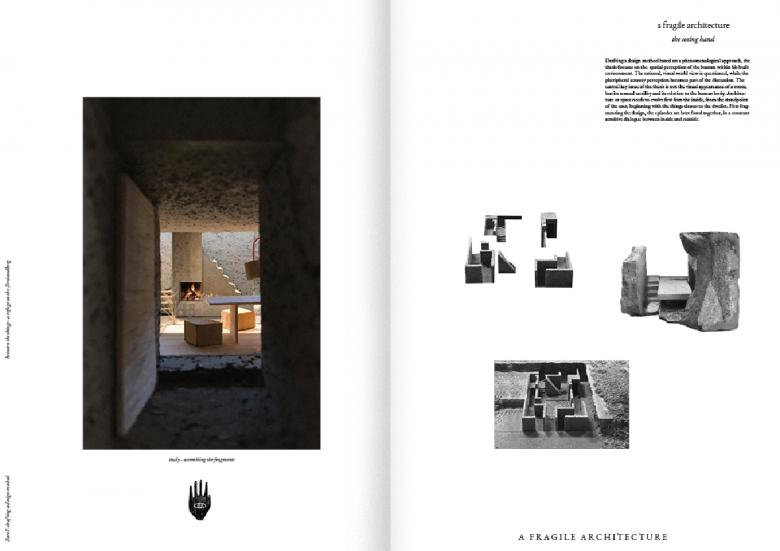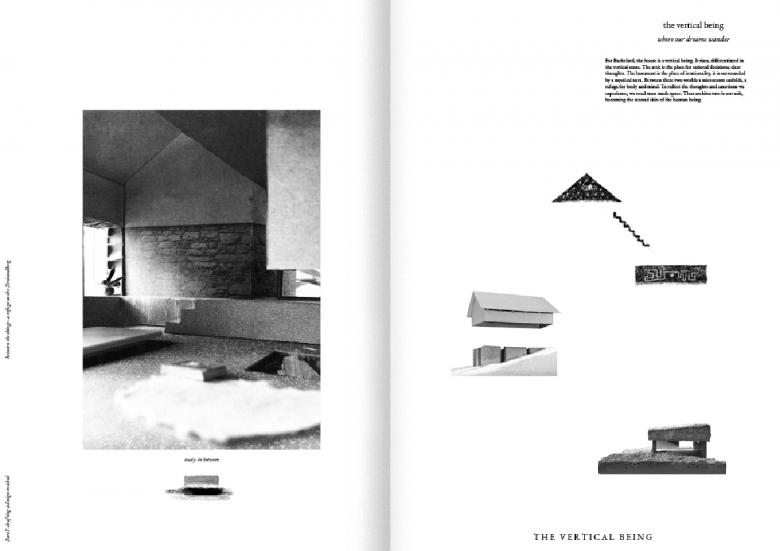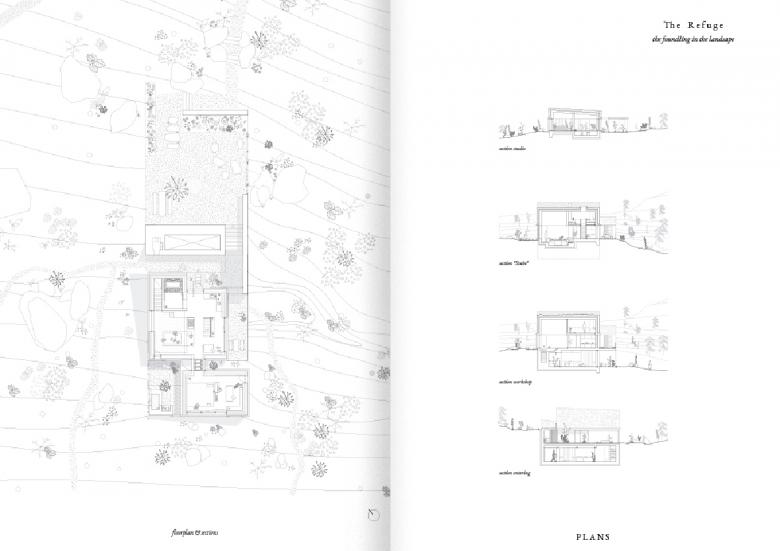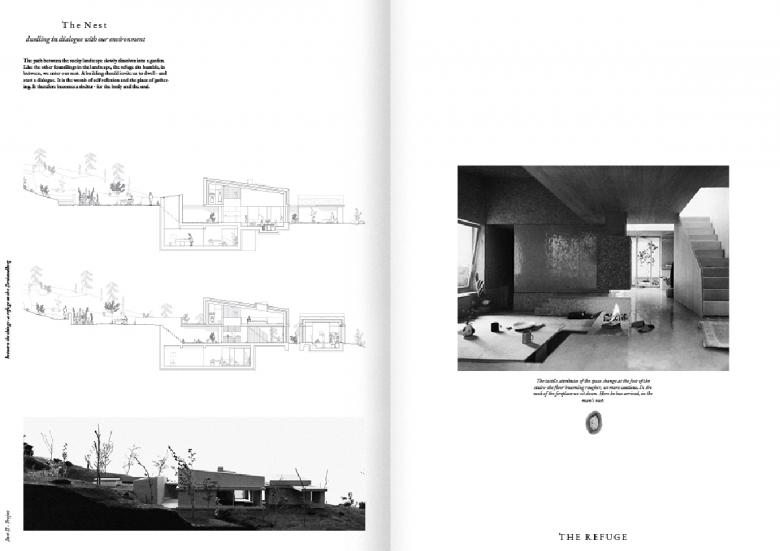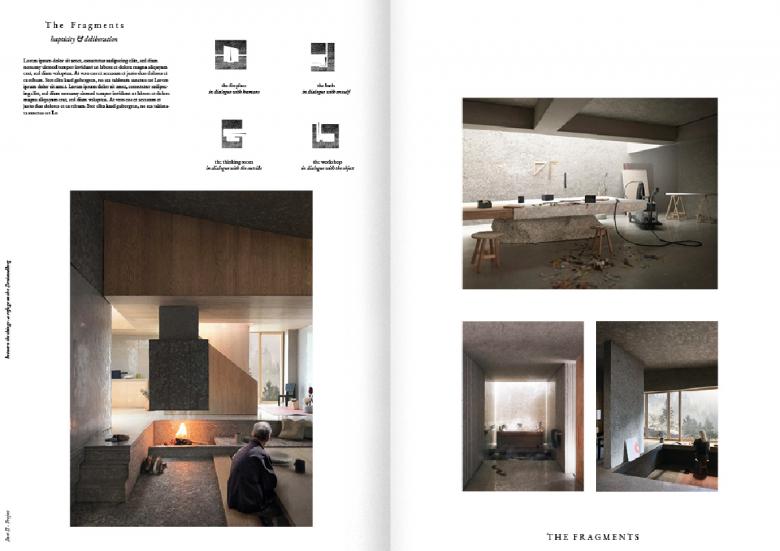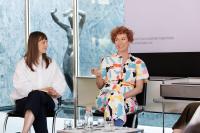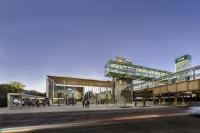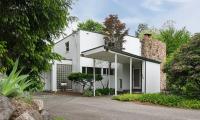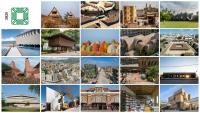Between the Things
Dreisesselberg, Germany
A Refuge on the "Dreisesselberg"
The focus lies on the spatial perception of the human within his built environment. Hereby, the rational, visual world view of our society is questioned, while the peripheral sensory perception becomes part of the discussion. The central key issue is here not the visual appearance of a room, but the sensual tactility and relation to the human body.
To feel at home at an unfamiliar place requires a sensible architecture, that concentrates on the dialogue between human and building. The theoretical part deals with the drafting of a personal design method, which makes use of phenomenological approaches. The second part puts the formulated method into practice, where the design begins first from the standpoint of the user and evolves further into a dialogue between inside and outside. The thesis and process roots in the master studio brief of a “thinking space”.
The question that arises at the beginning of my thinking process is: What is architectural quality and what does it trigger? When do we feel comfortable? How can we control it as architects? The question arises as current buildings are increasingly being deprived of their primary task - to protect people. My thesis tries to investigate this existential question through a phenomenological approach. The considerations are an attempt of interpretation, a way of reading our built environment, trying to develop a personal design method in which the sensitive, physical perception is the central design task. The thoughts are put into practice by designing a refuge on the Dreisesselberg, Bohemian Forest, at the border of Germany, Austria and Czech Republic - a fragile landscape in a rural setting, marked by the loss of its local building culture (e.g. Steinbloßhäuser). Especially in a rural context architecture is increasingly distancing itself from people and creating emotionless copies of copies, it is therefore important to put this dialogue back in focus. Where buildings used to respond individually and sensitively to their local context, today interchangeable, universal standard solutions sit like foreign objects in their surroundings. The speed of our society increases the desire for peace and isolation. Escaping the noise of our everyday life is tempting and poetic. However, the refuge shall not be an idea of fleeing, rather one to take in an alternative position for a period of time from which we can reflect on ourselves and our environment, escaping our everyday for an instant. The idea of creating a place, where the pace is muted, away from the hectic, arises from a basic need for human existence.Thus the expectation of the building is to create an enclave of self-reflection in the midst of its rough, emotional landscape - a place of isolation, one’s awareness, but also of community. In the broader sense, it is a think-space for both intellectual as well of the craft. The refuge is designed to welcome residents and invite them to a dialogue. It is therefore a shelter for mind and soul, a home away from home.
